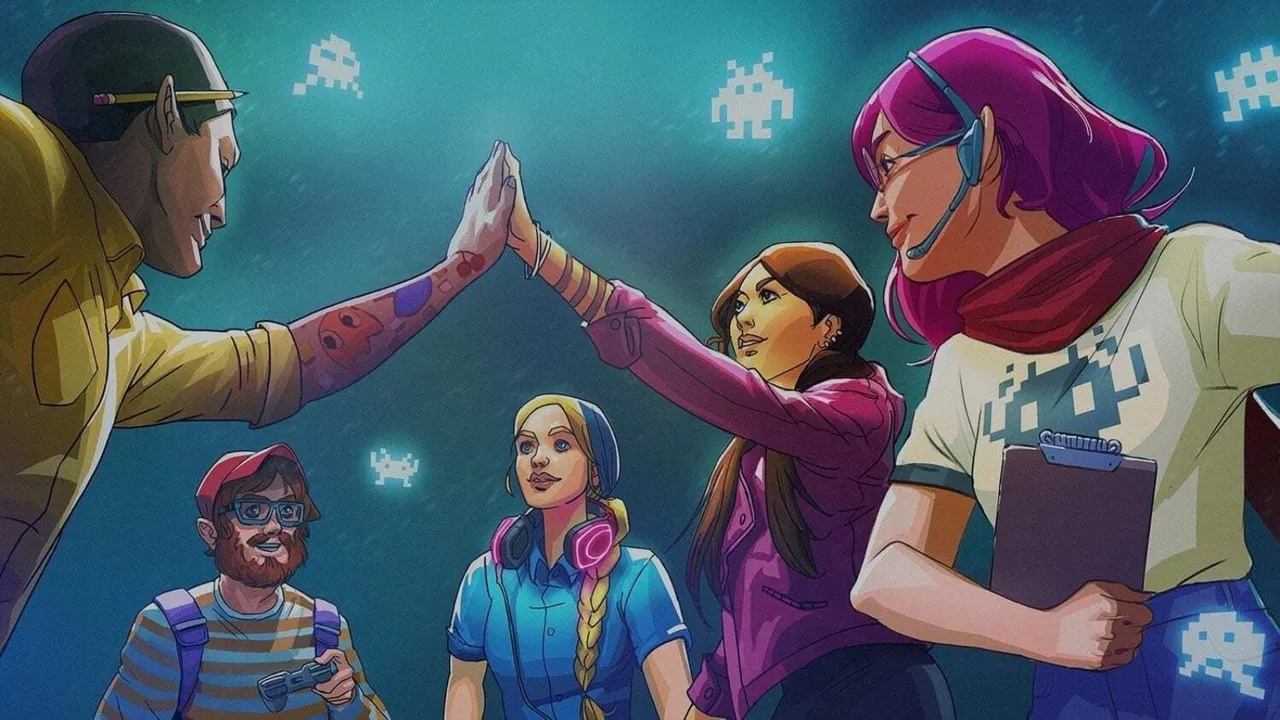Junior-level Jobs in the Video Game Industry: The Ultimate Guide

Introduction
The video game industry is an exciting and rapidly expanding field, offering diverse opportunities for individuals with varying levels of experience. For those with 1-2 years of relevant professional work experience, a range of junior-level positions are available, providing the chance to advance your career and contribute to the development of innovative gaming experiences. This comprehensive guide will discuss various job roles, and the skills required for career progression, and provide estimated salary ranges for each position.
The Landscape of Junior-Level Positions in the Video Game Industry
Junior-level positions in the video game industry typically require a foundation of relevant skills and experience, often gained through entry-level roles, internships, or academic programs. These roles offer increased responsibility, opportunities for collaboration, and the potential for career growth. As you transition from an entry-level to a junior-level position, you'll be expected to apply your existing skills while continuing to learn and develop new competencies.
Job Roles in the Video Game Industry
The following are some of the junior-level job roles available in the video game industry, along with their estimated salary ranges:
Junior Game Designer ($45,000–65,000 USD per year): Junior game designers collaborate with other designers, programmers, and artists to create game mechanics, levels, and gameplay experiences. With 1-2 years of experience, you'll be expected to contribute to game design decisions, while continuously refining and expanding your design skills.
Junior Game Artist ($40,000–60,000 USD per year): Junior game artists create visual assets for video games, such as character models, environments, and animations. Specializing in areas like concept art, 3D modeling, or texturing, these artists play a crucial role in defining a game's aesthetic and bringing its world to life.
Junior Game Programmer ($55,000–75,000 USD per year): Junior game programmers are responsible for writing and maintaining the code that powers video games. With a strong foundation in programming languages and game engines, these individuals work closely with other team members to implement game features and ensure that games run smoothly and efficiently.
Junior Game Producer ($45,000–65,000 USD per year): Junior game producers assist in managing the development process, coordinating team members, and ensuring that projects are completed on time and within budget. With a background in project management and an understanding of the game development lifecycle, junior game producers play a critical role in keeping teams organized and focused.
Junior Game Writer ($35,000–55,000 USD per year): Junior game writers contribute to the narrative and storytelling elements of video games, including character dialogue, world-building, and plot development. With a foundation in creative writing and storytelling techniques, these individuals work closely with designers and artists to create engaging narratives that enhance the overall gaming experience.
Junior Community Manager ($35,000–50,000 USD per year): Junior community managers are responsible for engaging with a game's player base, managing social media accounts, and coordinating events or promotions. With strong communication and interpersonal skills, these professionals help to foster positive relationships between players and the development team.
Junior Marketing and PR Specialist ($40,000–60,000 USD per year): Junior marketing and PR specialists develop and execute marketing strategies, create promotional materials, and manage public relations efforts for video games. With a background in marketing or communications and an understanding of the gaming industry, these individuals play a vital role in generating excitement and interest around new game releases.
Junior Customer Support Representative ($30,000–45,000 USD per year): Junior customer support representatives assist players with technical issues, gameplay questions, and account management. With 1-2 years of experience, these professionals should have a strong understanding of the game and its mechanics and be able to efficiently troubleshoot and resolve player concerns.
Junior Game Localization Specialist ($40,000–60,000 USD per year): Junior game localization specialists work on translating video games and related materials into different languages, ensuring that games are accessible to a global audience. With a foundation in translation and cultural adaptation, these professionals collaborate with developers, writers, and other team members to create translations that resonate with players around the world.
It's key to note that these salary figures are only estimates and can vary depending on factors such as the size and location of companies, your skill set, and the demand for professionals in your field. Additionally, some companies may offer other benefits, such as stock options, bonuses, or profit-sharing, which can impact your overall compensation package. To get a better understanding of the salary range for junior-level positions in your desired role and location, research industry-specific salary data, and consider reaching out to professionals working in the field.
Skills and Educational Background for Career Advancement
To progress from an entry-level to a junior-level position in the video game industry, it's essential to continue refining your skills and expanding your knowledge. While formal education can be beneficial, hands-on experience and a strong portfolio of work are often more valuable to potential employers. Consider taking online courses, attending workshops, or participating in industry events to stay up-to-date on the latest trends and best practices in your chosen field.
Networking and Industry Events
As you advance in your career, networking becomes increasingly important. Attend industry events, conferences, and local meetups to connect with professionals and learn about job opportunities. Building relationships with other industry professionals can help you gain valuable insights, receive mentorship, and potentially open doors for junior-level positions.
Pursuing Specialization and Certifications
As you progress in your video game career, it's essential to consider specializing in a specific area of game development. Specialization can help you stand out from the competition and increase your earning potential. For example, you may choose to focus on a particular programming language, game engine, or artistic discipline.
Additionally, obtaining industry-recognized certifications can demonstrate your expertise in specific tools, engines, or methodologies. Certifications from organizations like Unity, Unreal Engine, or Scrum Alliance can make you more appealing to potential employers and further advance your career.
Building a Strong Portfolio
A strong portfolio is crucial for showcasing your skills and experience to potential employers. Continuously update your portfolio with your best work from both professional and personal projects. Make sure to highlight your role and contributions to each project and demonstrate your ability to collaborate with others. A well-curated portfolio can significantly impact your chances of securing junior-level positions in the video game industry.
Adapting to Remote Work Opportunities
With the rise of remote work opportunities in the video game industry, it's crucial to adapt to this new landscape. Remote work can open up job prospects across the globe, allowing you to collaborate with teams located in different regions. Ensure that you're comfortable with remote work tools, such as video conferencing software, project management platforms, and communication apps. Demonstrating your ability to effectively work remotely can increase your chances of securing junior-level positions in the industry.
Participating in Game Jams and Collaborative Projects
Taking part in game jams and collaborative projects can provide invaluable experience and help you build a diverse portfolio. Game jams are events where developers work together to create a game in a short period, usually over a weekend. These events allow you to hone your skills, learn new techniques, and collaborate with others in a fast-paced, creative environment. Participating in game jams and other collaborative projects can showcase your teamwork abilities and adaptability, which are essential qualities for junior-level roles.
Staying Informed About Industry Trends and Developments
Staying up-to-date with industry trends and developments is crucial for career progression in the video game industry. Keep an eye on the latest gaming news, technological advancements, and best practices to ensure that your skills and knowledge remain relevant. Subscribe to industry newsletters, follow prominent game developers and studios on social media, and regularly read articles and blogs from reputable sources. Being informed about the industry can not only help you make better decisions in your own projects but also make you a more attractive candidate for junior-level positions.
Engaging with Gaming Communities and Social Media
Active engagement with gaming communities and social media platforms can help you gain insights into the industry, connect with like-minded professionals, and learn from experienced individuals. Engage in discussions, ask questions, and share your work to receive feedback and grow your knowledge. Platforms like X, LinkedIn, Discord, and specialized gaming forums are excellent resources for networking and learning from others in the gaming community. Additionally, maintain a professional social media presence to showcase your work and demonstrate your passion for the industry.
Setting and Achieving Career Goals
As you advance in your career, it's essential to set achievable goals for both skill development and career progression. Establish short-term and long-term goals, and create a plan to reach them. This may involve taking on new responsibilities at work, pursuing additional education, or working on personal projects to improve your skills. Regularly review and adjust your goals to stay on track and maintain focus on your career progression.
Embracing a Growth Mindset
Adopting a growth mindset is critical for success in the video game industry. This involves viewing challenges as opportunities for learning and growth, rather than obstacles to overcome. Embrace feedback and criticism, and use them to improve your skills and understanding. Be open to learning new tools, techniques, and approaches, as the industry is continually evolving. A growth mindset will not only help you advance in your career but also make you a more valuable and versatile team member in any junior-level role.
Pursuing Mentorship Opportunities
Seeking mentorship from experienced professionals in the video game industry can provide invaluable guidance and support as you advance in your career. A mentor can offer insights into the industry, share their knowledge and experiences, and help you navigate the challenges you may face in your career journey. Reach out to professionals in your network or attend industry events to connect with potential mentors. Establishing a mentor-mentee relationship can accelerate your career growth and expand your understanding of the industry.
Being Proactive in Job Searching
While progressing from an entry-level to a junior-level position, it's essential to be proactive in your job search on Hitmarker. Regularly update your resume and portfolio, and customize your application materials for each job you apply for (including your cover letter). Research potential employers, understand their company culture, and demonstrate your enthusiasm for their projects. Networking and connecting with professionals in the industry can also lead to job opportunities that may not be advertised publicly. By being proactive and persistent in your job search, you increase your chances of securing a junior-level position in the video game industry.
Final Thoughts
Transitioning from an entry-level role to a junior-level position in the video game industry can be both challenging and rewarding. By focusing on skill development, networking, specialization, and building a robust portfolio, you can increase your chances of securing a junior-level role in this exciting field. Remember to stay persistent, keep learning, and maintain your passion for video games. With dedication and hard work, you can continue to grow and succeed in the video game industry.
-
 Landing a Summer Internship in the Video Game Industry: The Ultimate Quick Guide
Landing a Summer Internship in the Video Game Industry: The Ultimate Quick Guide -
 Entry-level Jobs in the Video Game Industry: The Ultimate Guide
Entry-level Jobs in the Video Game Industry: The Ultimate Guide -
 Junior-level Jobs in the Video Game Industry: The Ultimate Guide
Junior-level Jobs in the Video Game Industry: The Ultimate Guide -
 Intermediate-level Jobs in the Video Game Industry: The Ultimate Guide
Intermediate-level Jobs in the Video Game Industry: The Ultimate Guide -
 Senior-level Jobs in the Video Game Industry: The Ultimate Guide
Senior-level Jobs in the Video Game Industry: The Ultimate Guide -
 Getting into gaming: Strategies for landing your first game development job with Katherine Mould of Keywords Studios
Getting into gaming: Strategies for landing your first game development job with Katherine Mould of Keywords Studios -
 Art and Animation Jobs in the Video Game Industry: An Overview
Art and Animation Jobs in the Video Game Industry: An Overview -
 Business Operations Jobs in the Video Game Industry: An Overview
Business Operations Jobs in the Video Game Industry: An Overview -
 Communications and Marketing Jobs in the Video Game Industry: An Overview
Communications and Marketing Jobs in the Video Game Industry: An Overview -
 Content Creation Jobs in the Video Game Industry: An Overview
Content Creation Jobs in the Video Game Industry: An Overview -
 Game Design Jobs in the Video Game Industry: An Overview
Game Design Jobs in the Video Game Industry: An Overview -
 Game Development Jobs in the Video Game Industry: An Overview
Game Development Jobs in the Video Game Industry: An Overview